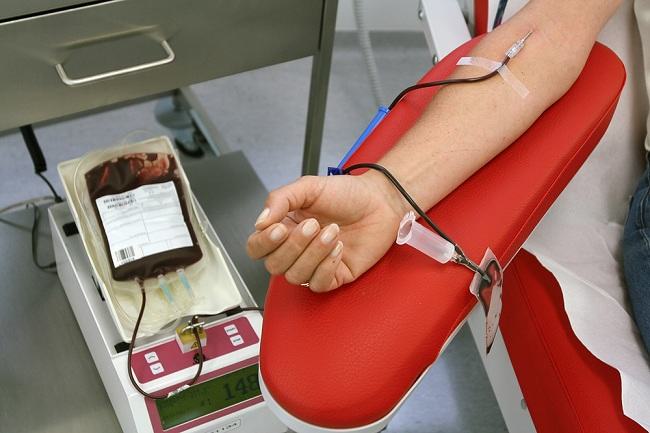Digestive disorders in toddlers (under three years) are common. This condition can be troubling for mothers, especially if it causes your little one to be fussy all the time. Therefore, It is important for mothers to know the common digestive disorders experienced by toddlers, how to overcome them, as well as how to prevent them.
Toddlers who experience digestive disorders will generally show symptoms such as fussiness, flatulence, nausea, vomiting, diarrhea, to dehydration. Usually these symptoms appear because your child has eaten too much, has a gastrointestinal infection, or is lactose intolerant. This condition also often arises due to the baby's digestive system which is still in its infancy, and is still adjusting to the type of intake given. Sometimes, your little one may also experience indigestion when he eats spicy food.

Common Digestive Disorders in Toddlers
There are several digestive disorders that are commonly experienced by toddlers, including:
- spittingSpitting up is a normal condition, because the baby's esophagus is not fully developed. In addition, the size of the stomach is also still very small. When you eat too much or swallow air while feeding, your baby may spit up. Usually, the spitting up will disappear when the baby is between 6 months to 1 year old, because at that time the esophageal muscles are able to function properly. Spitting up in babies is not a worrying condition, as long as it doesn't occur excessively or prolonged, and does not cause disturbances to its growth and development.
- BloatedStomach bloating in children, can make him cry and fuss. This condition is caused by the child's digestive tract not functioning perfectly. Children who experience flatulence will usually show typical symptoms, namely the stomach becomes hard, often burps, fussy, and often farts. This condition can be caused by the way your little one eats and drinks too fast or too slowly, drinks from a teat bottle with lots of air bubbles, as well as the habit of sucking on an empty teat bottle. Eating gassy foods, such as broccoli, sweet potatoes, onions, or cabbage, can also cause bloating. In addition, there are other conditions that can cause flatulence, such as reflux or backflow of stomach acid, and lactose intolerance.
- ColicColic in infants is characterized by excessive crying. Generally colic occurs in the first few weeks after the baby is born and stops when the baby is 4 months old. Babies who have colic will cry for more than 3 hours a day for 3 days a week, at least 3 weeks in a row.
- ConstipationConstipation or difficulty defecating, is quite common in toddlers. Usually caused by complementary feeding (MPASI), dehydration, or certain medical conditions. Symptoms of constipation in toddlers are easy to recognize, namely your little one does not defecate at least three times a week, has difficulty passing stools, and the texture of the stool is hard. In addition, the stomach can feel hard, decreased appetite, feel pain when pushing, and cry every time he is invited to the toilet to defecate (BAB). To overcome this, Mother can give children constipation medicine.
- DiarrheaBasically, as long as the child is still consuming breast milk, formula milk, or semi-solid food, the texture of the stool during defecation tends to be soft. However, Mothers should be wary when your little one is defecating too often, liquid stools, or in large quantities. It could be that your little one has diarrhea. Diarrhea in toddlers can be caused by many factors, ranging from parasitic, bacterial or viral infections, allergies to certain foods or drugs, drinking too much fruit juice, to food poisoning.
Although quite common, indigestion in children cannot be underestimated, especially if this digestive disorder occurs continuously or repeatedly. Because, there is a relationship between the health of the Little One's digestive tract with the process of growth and development and the level of intelligence. Little ones can experience nutritional deficiencies and tend to be less active, including in learning, if they often experience digestive disorders.
How to Overcome Digestive Disorders and Maintain Toddler Digestive Health
There are many simple ways you can do when your toddler often has indigestion, including:
- Memppay attention to the correct feeding or feeding positionGet used to breastfeeding or feeding the child in a more upright position, and maintain this position for about 20 minutes after feeding or feeding. This is done to prevent milk and food from rising back up into the esophagus. Also make sure your little one doesn't eat or drink too fast.
- Gently massage the little one's tummyIf your little one has bloating, gently massage his tummy to relieve gas or make his tummy feel better. In addition, Mother can also rub the back of the Little One. The trick, put your little one on the mattress or on both of your mother's thighs with the stomach facing down or face down.
- Provide food containing fiberIf your little one suffers from constipation, you should give them foods that are high in fiber. Prioritize giving him fiber intake from fruits or fruit juices, such as apples or pears. In addition to fruits, whole wheat bread can also be given to your little one.
- Avoid certain foods when experiencing indigestionIf your child has diarrhea, avoid any foods that can make diarrhea symptoms worse, such as oily foods, foods high in fiber, spicy and sour foods, dairy products, and sweet foods. If your little one is still drinking breast milk, you should also not eat these various foods.
- Consider changing formula milkIf your little one consumes formula milk, you should consult a doctor first to consider replacing formula milk. For example, with partially hydrolyzed protein formula (partially hydrolyzed protein). Although it is still being researched, this type of milk is considered to have a softer protein formula, so it is easily digested and absorbed by the child's body. In addition, you can also choose a type of low-lactose milk. But don't forget, pay attention to the nutritional content in formula milk, such as calcium, iron, omega-3, folic acid, vitamins B1, B6, and B12, in order to meet the nutritional needs of children so that the growth and development and intelligence of the Little One can be optimal.
Maintain a healthy and appropriate diet for your little one, in order to maintain digestive health. Also invite your little one to always be active, both when exercising and playing, to support the digestive process and growth and development.
If your little one's digestive disorders don't improve or get worse, you should immediately consult a doctor to get the right treatment.









